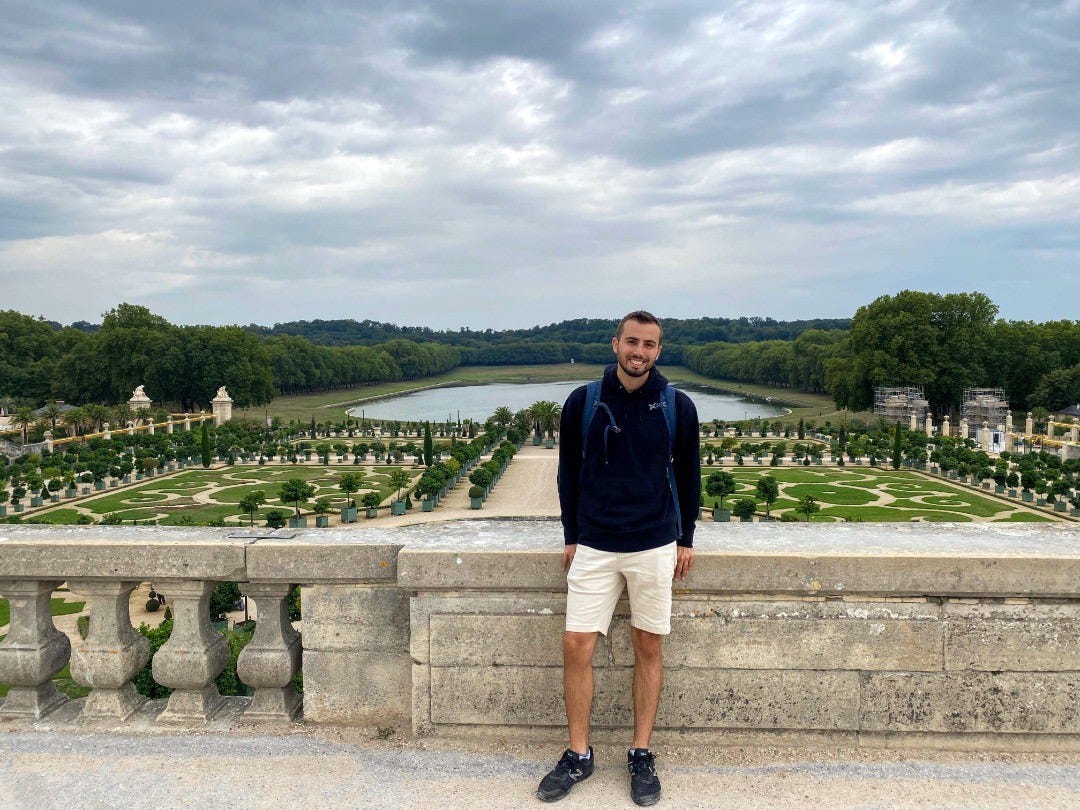Friend #28 - Joseph
The A.I. guy
I was initially hesitant to include how Joseph and I met but after a brief discussion, we both agreed that it would be funny to share.
In the summer of 2019, the two of us connected through a dating app. We went for a drink and then tried to arrange a brunch downtown but because I was 22 and scared of men and the long commute, I texted him that I couldn’t make it.
Joseph apologized for suggesting the brunch date and we went for a walk closer to where I live. Nothing came of it but to this day, I still consider his quick thinking to be one of the smartest things anyone has ever done in Miriam’s world of dating.
Now we are friends.
Joseph carries himself gracefully. He approaches situations through a lens of empathetic logic. A calmness that prevents him from taking anything too personally.
He grew up in Toronto and met most of his best friends in high school and university but acknowledges that people come and go. “Real friendship takes consistency,” he says.
Our conversation is complex. We dove into topics that cover identity, reciprocity, and the qualities of good friendship.
“When you think of your identity,” I ask, “what group do you associate yourself with the most?”
“First I consider my identity on the individual level. Then as part of my family and friends,” he says. “I also feel connected to the Jewish people and then larger bodies like the city I live in and the country but overall tied to Western civilization.”
We continue by talking about individualism and collectivism. “I think I’m an individualist because you have to put your family first but I believe in being altruistic,” says Joseph.
People don’t think to be emotionally intelligent—a point he makes clear.
“What does being emotionally intelligent mean?” I ask.
“It means using empathy and putting yourself in the other person’s shoes. Not doing that for 20 seconds but really thinking ‘Who is this person? What are they feeling? What are they going through?’” he says.
He continues by saying that we must embrace awkward and touchy subjects. A sign of emotional intelligence is admitting fault and taking the time to reflect and learn from what happened.
“People need to step outside themselves and shrink their ego,” he says. “If they have avoidant personality types, they need to work on that.”
“I’m more of an anxious person,” I admit. “But I think because of that I can come across as rude sometimes.”
What I’ve learned, and I consider this to be one of my greatest learnings about friendship, is that if someone cannot take accountability for something to the degree that they hurt you then the relationship is over.
The idea that we shouldn’t change some of our own habits to accommodate someone else is juvenile in my opinion. As is the idea that a friend must always make us happy.
Friends need to be there in both the good and bad times.
“Do you believe in the spark?” I ask Joseph referring to the feeling many people believe is the basis of friendship or romantic relationships.
“No because that would mean I connected with the person on something superficial when I care more about their values and those take time to learn,” he says.
Joseph spent a few months in Brazil during university and visited in January. “In Brazil, people hang out for much longer periods of time. If I would meet someone in the afternoon, we’d spend all night together,” he says.
I recently read that it takes about 100 hours to build a friendship and 200 hours to build a close friendship. Perhaps it takes us longer to build close friendships in North America because we’re less willing to spend morning to night with new people or we organize our time in a way that prevents opportunities to do so.
On Wednesday, I went for dinner with a former colleague and she said that the natural human connection we used to get at work, we now have to seek out. Adding to the list of things we need to make time for.
I think that the greatest challenge we face today is that we need to figure out how to build relationships and friendships in a society that throws challenges at us at a speed that requires a longer adjustment period.
“Inside us, there is something that has no name, that something is what we are.”
―José Saramago
Internet browsing



This was a GREAT read. Thank you.